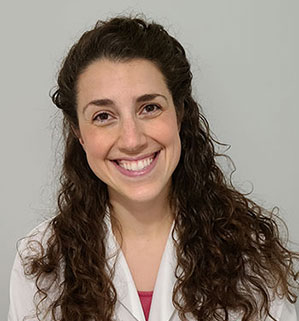Do you have acid reflux? You may want to talk to your doctor about Barrett’s esophagus.
Barrett’s esophagus is a condition that occurs when the flat and pink lining of the esophagus becomes damaged due to acid reflux. This results in the lining of the esophagus becoming thick and red.
Here are some of the most important facts about Barrett’s esophagus:
Patients sometimes do not feel any symptoms of Barrett’s esophagus.
Half of all those diagnosed with the condition do not notice any symptoms of acid reflux. Symptoms may include difficulty swallowing, heartburn, regurgitation, and chest pain.
Those with Barrett’s esophagus have a higher risk of esophageal cancer.
Patients should never ignore their symptoms and undergo any recommended screenings. Around 19,260 cases of esophageal cancer are predicted to be diagnosed this year alone.
Barrett’s esophagus is diagnosed using an upper GI endoscopy and biopsy.
If patients have trouble with heartburn, regurgitation, or acid reflux, they should talk to their doctor about their risk of Barrett’s esophagus.
If you are experiencing chronic heartburn, talk to your doctor about your risk for Barrett’s esophagus.
Provider Spotlight

Stephanie Lynch, P.A.-C
Our physician’s assistant, Stephanie Lynch, is a wonderful recent addition to our team! Stephanie graduated with honors from the University of Delaware in 2011 with a degree in Biological Sciences. She then went on to earn her Master’s degree in Physician Assistant Studies from the Massachusetts College of Pharmacy and Health Sciences where she also graduated with honors in 2015. A native of Southern New Hampshire, Stephanie spent five years working in gastroenterology and primary care before joining the team at Granite State GI Consultants in 2021. Stephanie enjoys spending time outdoors and on the water, and was the captain of the University of Delaware rowing team in college. She currently lives in Auburn, New Hampshire with her husband and their two boys.
Interview with Stephanie Lynch, P.A.-C
How long have you been practicing medicine and what made you choose the profession?
I started practicing medicine as a physician assistant in 2016. Prior to that, I was working in emergency medicine as an EMT. I chose the PA profession to be able to have a greater impact on patient outcomes. I enjoyed emergency medicine but I love being able to work with patients to best manage chronic conditions.
What led you to choose gastroenterology as your specialty?
I have always been interested in the GI field because there is so much going on. I get to work with patients with liver disease, pancreatic issues as well as intestinal complaints.
How do you approach diagnosis and treatment for your patients?
I think that one of the most important aspects of my job is patient education. This empowers the patient and leads to a better understanding of disease states as well as better treatment outcomes.
What is something you wish all patients knew about their digestive health?
I want to reinforce the importance of a healthy diet and regular physical activity on overall digestive health.
What are the most important preventative screenings in your specialty?
In light of the COVID-19 pandemic, I think what we need to focus on now is ensuring that patients continue to meet with their primary care providers for their preventative health visits and then follow through with their colon cancer screening colonoscopies.
What do you think is the most pressing health issue affecting patients today in terms of their digestive health?
As a GI PA, I am trained to manage all conditions but I am especially interested in inflammatory bowel disease. I also have really enjoyed treating hepatitis C patients since the newer therapies have become available. Now we are able to eradicate Hepatitis C in a matter of 8 to 12 weeks with very minimal side effects.
How do you stay up to date on the latest in medical news and technology?
A positive trend from the pandemic is that a lot of conferences are now offering virtual attendance. That has made continuing my medical attention much easier – especially as a busy working mom of young kids.
Outside of gastroenterology, what are your hobbies and interests?
I love being on the water – beach, lake, river anything! I try to get out and kayak as often as I can but have also been stand-up paddleboarding lately. Beyond that, I am really trying to soak up as much quality time with my boys. We like to go for family hikes, exploring our beautiful state of New Hampshire.
What is your favorite part of working with the team at Granite State Gastro?
The best part of working at Granite State GI is the fact that we are a team. I love being able to lean on the expertise of my colleagues. It creates an atmosphere where patient care comes first, always.
Current Topic
Can diet affect IBD? What patients should know.

There have been numerous recent publications on diet’s influence on Inflammatory Bowel Disease. Researchers have been exploring the links between diet and inflammation and their influence on disease activity. Results show that patients can reduce inflammation and induce mucosal healing with certain diets. There are risks with dietary manipulation in patients with IBD due to the malnutrition associated with the disease. Research is currently being done on whether preventative dietary measures can help long-term.
If you have IBD and have noticed certain foods in your diet trigger your symptoms, talk to your doctor about how you can change your diet to improve your health.
Patient Education
Understanding Esophageal Dilation

An esophageal dilation is a procedure that involves dilating a narrowed area of the esophagus. The esophagus is a muscular tube that connects the throat and stomach, and is about eight inches long and lined with pink tissue called mucosa.
This procedure is used to treat the narrowing of the esophagus caused by scarring from the reflux of stomach acid, webs or rings of excess tissue, scarring after radiation treatments, cancer of the esophagus, or esophageal disorders related to motility. If the esophagus has narrowed, the patient may experience trouble swallowing, pain or discomfort in the chest, and the sensation that food becomes stuck in the chest region.
During this procedure, a physician can apply a local anesthetic spray and pass a weighted dilator through the mouth and into the esophagus. or they may also perform the procedure in conjunction with a sedated endoscopy. X-rays may also be taken during the procedure.
Patients should inform their doctor if they are taking any medication or supplements prior to the procedure and in certain cases may be required to take antibiotics. Depending on what caused the narrowing of the patient’s esophagus, they may need to undergo additional dilations in the future.
If you have IBD and have noticed certain foods in your diet trigger your symptoms, talk to your doctor about how you can change your diet to improve your health.
Office Updates

Our office is taking extra steps to ensure that we have better communication with our patients, and we are implementing a new call center in our office! Patient communication is one of the most important aspects of care and we are committed to providing the best quality care to all of our patients. Whether you are looking to book an appointment, follow up about results, or need to check in with your doctor, our new call center will help us facilitate better communication between our staff and our patients.

